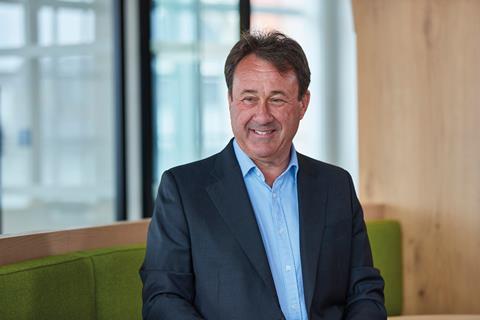Underlying profit heads north after firm’s first provision in seven years hits bottom line
Morgan Sindall racked up its first exceptional item in seven years after the firm said it was making a £49m provision to carry out cladding repair work required by government legislation.
The last time it was forced to book a charge was in 2016 when it wrote off £47m on two contracts that came with its purchase of Amec’s construction business in 2007.
The cladding provision had already been flagged and this morning Morgan Sindall said the cost of meeting the developer pledge under the Building Safety Act would be £48.9m.

Speaking about the charge, chief executive John Morgan said: “It’s not through normal trading, this is very different to bad jobs. It really is an exceptional and it’s in the range that we had previously said it would be.”
The firm said the amount “does not include the benefit of any potential income subsequently received for recoveries from third parties” and Morgan added it was still mulling whether to try and recoup the money. “It’s early days and very difficult to know how this is going to pan out. This will take a long time. [The provision is] mostly with our urban regeneration business where other contractors did the work. Any other exceptional will be as profit.”
The charge meant pre-tax profit was dragged down a third to £85m on turnover up 12% to £3.6bn.
But underlying pre-tax profit was up 7% to £136m and Morgan said its expectations for the year ahead remained unchanged with broker Numis expecting profit to be around £132.5m this year before climbing to £139m next.
The firm’s fit-out business continues to boom with the company upgrading what it expects to make this year because of ongoing demand.
“There’s some big lease renewals, clients are changing space to make it more attractive and there’s a lot of work in energy efficiency,” Morgan said.
Along with ISG, its Overbury fit-out arm is due to return its bid for a £150m-plus deal to carry out work at the new Google headquarters building in King’s Cross any day now with the firm also set to start work later this year on a huge overhaul of Citi’s Canary Wharf headquarters in a deal which could end up being the firm’s biggest ever.
The job for the US investment bank has been given an official value of £100m but it is understood work on the 42-storey office tower at 25 Canada Square, completed in 2001, could be as much as four times that number.
But Morgan said most of its fit-out work is between £3m and £4m, adding: “We have lots and lots of smaller jobs for key clients. That’s the backbone of the business.” Revenue at fit-out was up 22% to £968m on operating profit up 18% to £52m.
The partnership housing business, which Morgan has previously said he expects to become its biggest, saw income climb 22% to £696m on operating profit up 13% to £37m.
“It’s doing very well,” Morgan said. “There’s plenty of schemes to go for but we’re going to sell less because the market is not as strong as last year.”
Like the major housebuilders, Morgan said sales at its affordable housing business had been hit by last September’s mini-Budget, although the firm did not break out by how much. “It certainly didn’t help,” said Morgan of former chancellor Kwasi Kwarteng’s statement, “although perhaps the market was softening anyway.”
The firm’s biggest business remains construction and infrastructure where revenue was up 3% to £1.6bn although operating profit was down 10% to £52m.
Margins at the business slipped to 3.3% but Morgan said it was still in track for a £2bn turnover business with operating margins at construction between 2.5% and 3% and between 3.5% and 4% at infrastructure. And he added: “Inflation is definitely moderating, particularly in labour, and materials are more available now.”
The firm’s order book was off 2% at £8.5bn while average daily net cash for the year was £256m, down from £291m last time.























No comments yet